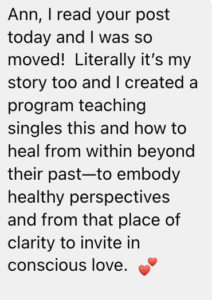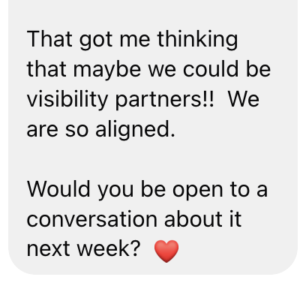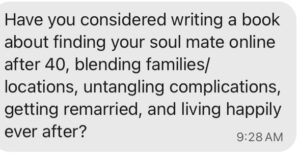Maybe I’ve told this story before, maybe not.
During grad school, I wrote a series of personal essays and short stories about my experience living in Iran and the demise of my marriage. After graduating, I built out this body of work and decided to pitch it as a memoir to an agent at some big prestigious writing retreat. The single takeaway I got from that experience, if you don’t count learning that I didn’t know how to pitch my way out of a paper bag, was that an unknown writer like me would need to develop an author’s platform if I were to ever get a traditional publishing house deal, which is all any of us wanted back in the day.
To that end, I started a blog.
Because my goal was to build interest in my memoir, I began to write about relevant topics. I’d share bits of my writing, talk about books that had changed my life or taught me something about myself, and essentially describe what made me tick. What kind of girl ends up in Iran, neck deep in trouble? A girl like this…insert chaos. That was the basic theme.
The more I wrote about my alcoholic upbringing, my lack of boundaries, the bad choices that I’d made, and why (what made me tick, in other words), the more engagement I’d get with my posts. People seemed to relate to what I had to say, which surprised me.
By the way, if you’re a writer, this kind of response feels pretty damn terrific.
Seemingly out of nowhere, readers, primarily women, began to ask me for advice. They were interested in my perspective.
Thanks to the clamor—OK, maybe it wasn’t technically “clamor” but it sure felt like it—I got it in my head to turn my advice-giving into a coaching business. For two years I taught others how to draw better boundaries. Bit by bit, I realized that most of my clients weren’t ready to look ahead, they needed to look backwards, as I had done in therapy. So I took down my shingle.
I learned a lot about building a business, met a lot of brave women, so zero regrets.
Here’s the thing about writing on a given topic or theme over the course of months or years. If your stories and insights are any good, you’ve got the makings of a business. Interested parties will enquire.
The problem I’d like to address right now, because there is one, is this: not every topic you write about SHOULD lead to a business venture.
Case in point.
Over the weekend I posted (on Facebook) a picture of my husband on our wedding day. With the image I included an edited version of a post I’d written years ago, the kind that had once brought me coaching business.
Here’s what happened:
Thing is, I have a healthy business. I help entrepreneurs and business professionals write and publish books. I really, really love what I do.
AND, when I look ahead at future projects that will require an investment of my time, money, and energy, none of them have a single thing to do with creating an offer involving finding love after 40 or dating in general.
Don’t get me wrong, the writer in me loves to get this kind of feedback. And I can always use another swift kick in the ass to finish my memoir because homegirl ain’t starting another book project until that one’s out the door.
Latching on to any of these ideas because of the feedback I received would be a rookie mistake.
Whenever I talk to potential clients about the 101 book ideas they have rolling around in their head, I always lead with these two questions:
1. What do you want this book to do for you? For your business?
2. Do you have a book idea that relates to the work you are known for and/or the services and products you provide?
Because I can’t emphasize this teaching point enough: placing your ladder on the wrong wall is way WAY easier than you might think.
Or, in the interest of clarity, writing a “business” book on a topic you may not want to build a business around happens far more often than you’d guess.
I’ve found that two types of people tend to get into trouble with their ladders.
The first, to be all reductive, I’ll call the “young” business owner. They want nothing more than to tell their story, share their obstacle-filled journey so they can “save others time, pain, and grief.” The lessons they add off the back of their stories—camouflage for their true intent—are what turn the author into an accidental something-or-other.
The second type I’ll call the multiple-hat-wearing entrepreneur. This sort has a wide range of interests and areas of “expertise”. One minute they’re all about their love of cryptocurrency and mission to start an advisory; the next, they’re on to their hot flashes and their desire to create a mastermind. Given their endless stream of ideas (or books!), no one really knows what the hell they do.
Look. Not every book needs to have a nexus to your business and the thing that you’re known for. Writing to better understand yourself, to share your insights with others without a thought to bringing readers into some product or service… well, that’s legitimate. Take it from someone who started this journey as a memoir writer.
Expressing yourself, having fun with the written word, capturing your love of cats or Jack Russell Terriers…it’s all good. But do not make the mistake of turning an idea into a business unless you’ve thought it through.
Let me go back to those two strategic questions I shared with you above. They’re designed to make you think, to serve as the most important filter of your various ideas. Don’t be that person who writes a book because you got a little feedback that makes you feel good. Think about the outcome you’re after. Then build your book around that. I guarantee you’ll save others time, pain, and grief along the way, including yourself.




